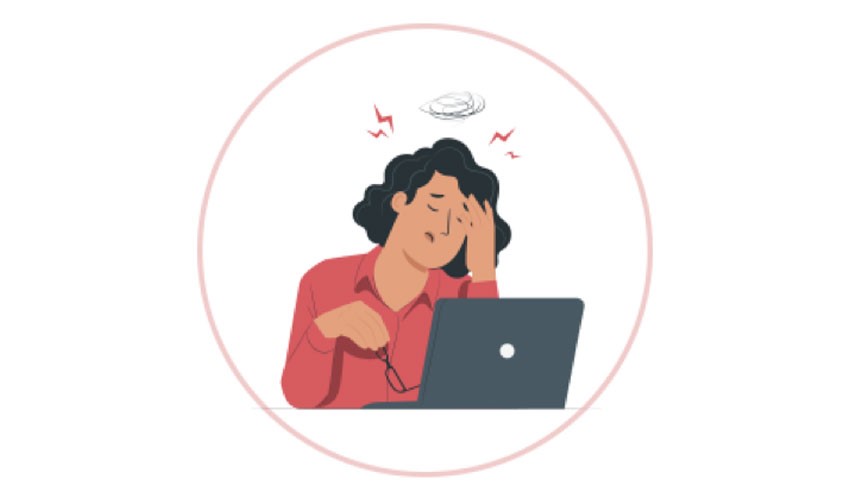- Mumbai, New Delhi, Bangalore
- (+91) 81518 30000
- WhatsApp Now
- contact@vedawellnessworld.com
In the labyrinth of health, one silent storm often lurks unnoticed: high blood pressure, or hypertension. Beyond its well-known cardiovascular implications, hypertension can cast a long shadow over mental well-being. Understanding the intricate relationship between high blood pressure and mental health is not only crucial for prevention but also for holistic health management.
At its core, hypertension is a condition characterized by elevated blood pressure levels, placing strain on the heart and blood vessels. However, its impact extends far beyond the cardiovascular system. High blood pressure can lead to changes in brain function, affecting mood regulation, cognition, and emotional resilience. These physiological alterations lay the groundwork for the development of mental health issues. Thus arises the question does high blood pressure cause mood swings and the answer is yes high blood pressure does cause mood swings.
Chronic stress and anxiety often walk hand in hand with hypertension, creating a turbulence that worsens physical and psychological symptoms. When stress becomes chronic, the body’s stress response system remains in a constant state of alertness, leading to sustained elevation of blood pressure. Over time, this chronic stress burden can contribute to the development of anxiety disorders and exacerbate existing mental health conditions.
To learn more about methods to manage stress and anxiety you should read this article Managing Stress and Anxiety in Daily Life: Practical Tips and Techniques

Among the most profound mental health implications of hypertension is its association with depression. The relationship between these two conditions is multifaceted, with hypertension increasing the risk of depression and vice versa. Unhealthy lifestyle habits common in individuals with hypertension, such as poor diet and physical inactivity, can further fuel the cycle of depression, creating a formidable challenge for both patients and healthcare providers.
The following article provides more information about depression and how to manage it Understanding Depression: Symptoms, Causes, and Treatments
Beyond mood disorders, hypertension can cast a shadow over cognitive function, paving the way for conditions like vascular dementia. The compromised blood flow to the brain associated with hypertension can lead to cognitive decline, memory impairment, and difficulties with decision-making. These cognitive changes not only impact daily functioning but also contribute to feelings of frustration and diminished quality of life.
In the face of this storm, resilience becomes our beacon of hope. Empowering individuals with hypertension to take charge of their mental health is paramount. Lifestyle modifications, including regular exercise, a heart-healthy diet, and stress management techniques like meditation and deep breathing exercises, serve as anchors in the tempest. Seeking support from healthcare professionals, therapists, and support groups can provide invaluable guidance and solace on the journey to wellness.

As we navigate the complex interplay between high blood pressure and mental health, let us do so with compassion and understanding. By shedding light on the silent storm brewing within, we empower individuals to confront the challenges head-on and reclaim their well-being.
Yes, high blood pressure can contribute to mood swings. Fluctuations in blood pressure levels can affect brain function and emotional regulation, leading to mood swings in some individuals. Additionally, the stress and anxiety associated with managing hypertension can further exacerbate mood changes. It’s important to monitor and manage high blood pressure effectively to minimize its potential impact on mood and overall well-being.
Yes, high blood pressure can cause irritability. Changes in brain function due to hypertension may lead to increased irritability and frustration. Managing high blood pressure effectively is important for overall well-being.
Yes, high blood pressure can lead to erratic behavior. Changes in brain function due to hypertension may affect emotional regulation, potentially causing fluctuations in behavior. Stress from managing hypertension can also contribute. Managing high blood pressure effectively is crucial for overall well-being.
Yes, certain mental health conditions can potentially lead to hypertension. Chronic stress, anxiety, and depression can all contribute to hypertension. Additionally, unhealthy coping mechanisms associated with some mental health conditions, such as substance abuse or poor dietary habits, can also increase the risk of developing hypertension. It’s important to address both mental health and physical health concerns to promote overall well-being.